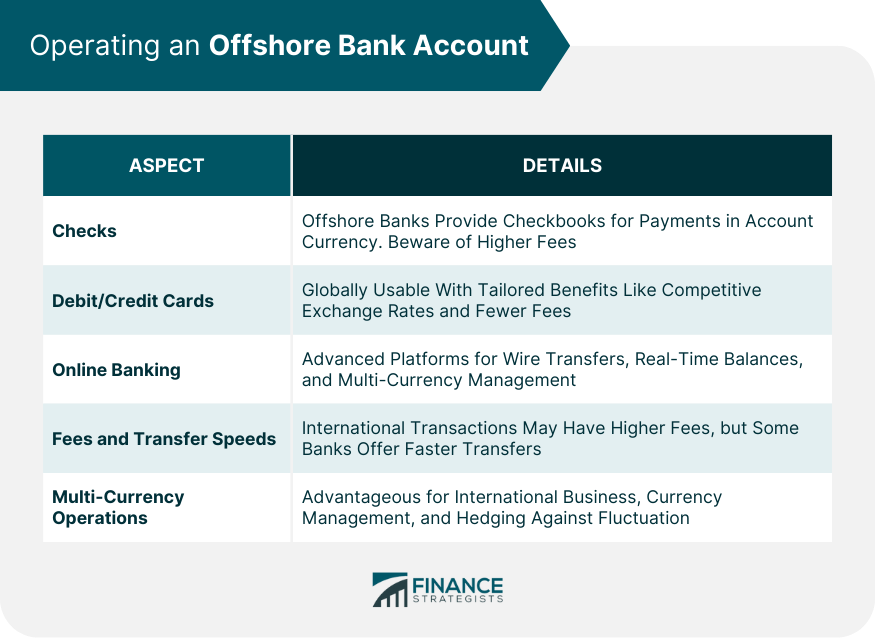Offshore Company Formation: Specialist Tips and Insights
Offshore Company Formation: Specialist Tips and Insights
Blog Article
Approaches for Cost-Effective Offshore Business Development
When thinking about overseas business formation, the mission for cost-effectiveness ends up being an extremely important problem for organizations looking for to increase their operations globally. offshore company formation. By exploring nuanced approaches that mix lawful conformity, monetary optimization, and technological advancements, organizations can get started on a course towards offshore firm development that is both economically prudent and purposefully noise.
Picking the Right Territory
When establishing an offshore firm, picking the ideal territory is a critical choice that can dramatically affect the success and cost-effectiveness of the formation procedure. The territory chosen will certainly figure out the regulative framework within which the firm operates, influencing tax, reporting requirements, personal privacy laws, and general company flexibility.
When picking a jurisdiction for your overseas company, numerous elements must be taken into consideration to guarantee the choice lines up with your critical goals. One critical element is the tax obligation program of the territory, as it can have a substantial influence on the company's productivity. Additionally, the degree of regulatory compliance needed, the political and economic stability of the jurisdiction, and the convenience of doing business needs to all be reviewed.

Furthermore, the track record of the jurisdiction in the global service area is necessary, as it can influence the understanding of your business by customers, companions, and financial organizations - offshore company formation. By meticulously evaluating these aspects and looking for specialist advice, you can select the ideal territory for your overseas firm that maximizes cost-effectiveness and sustains your company purposes

Structuring Your Company Successfully
To make sure optimal performance in structuring your offshore business, meticulous interest must be provided to the business framework. The primary step is to specify the firm's ownership framework plainly. This includes establishing the supervisors, officers, and investors, as well as their responsibilities and functions. By developing a clear ownership structure, you can make sure smooth decision-making procedures and clear lines of authority within the company.
Next, it is important to consider the tax implications of the chosen structure. Different jurisdictions offer varying tax benefits and incentives for offshore companies. By thoroughly examining the tax legislations and policies of the selected jurisdiction, you can optimize your company's tax obligation performance and decrease unneeded costs.
Additionally, maintaining appropriate documents and records is vital for the reliable structuring of your overseas business. By keeping accurate and up-to-date records of financial transactions, company choices, and compliance files, you can ensure openness and responsibility within the company. This not only helps with smooth procedures yet additionally helps in demonstrating conformity with regulative requirements.
Leveraging Modern Technology for Financial Savings
Efficient structuring of your offshore company not only hinges on careful focus to business structures but also on leveraging technology for cost savings. One method to take advantage of modern technology for savings in overseas firm formation is by using cloud-based services for information storage space and partnership. By incorporating modern technology purposefully right into your link overseas firm development procedure, you can attain substantial financial savings while boosting functional efficiency.
Reducing Tax Responsibilities
Utilizing critical tax obligation planning strategies can successfully decrease the economic concern of tax obligation obligations for offshore business. Additionally, taking benefit of tax motivations and exemptions used by the jurisdiction where the overseas company is registered can result in substantial cost savings.
Another technique to minimizing tax obligation liabilities is by structuring the offshore firm in a tax-efficient manner - offshore company formation. This entails very carefully designing the ownership and functional structure to enhance tax article obligation benefits. Setting up a holding business in a territory with favorable tax legislations can help settle earnings and reduce tax obligation direct exposure.
Additionally, remaining upgraded on global tax policies and compliance demands is crucial for decreasing tax obligations. By making certain strict adherence to tax laws and policies, offshore business can prevent pricey fines and tax obligation disagreements. Looking for professional advice from tax specialists or legal experts specialized in international tax matters can additionally image source give valuable understandings right into reliable tax obligation planning techniques.
Making Sure Compliance and Risk Reduction
Implementing durable conformity procedures is vital for offshore companies to mitigate threats and keep regulative adherence. Offshore jurisdictions commonly encounter enhanced analysis due to issues regarding money laundering, tax obligation evasion, and other financial crimes. To make certain conformity and reduce risks, overseas business should perform complete due diligence on customers and service partners to stop participation in illicit activities. Furthermore, executing Know Your Customer (KYC) and Anti-Money Laundering (AML) procedures can help validate the legitimacy of purchases and protect the firm's track record. Regular audits and evaluations of financial documents are essential to recognize any abnormalities or non-compliance issues without delay.
Moreover, remaining abreast of changing policies and lawful needs is vital for offshore business to adjust their conformity practices appropriately. Engaging lawful specialists or conformity consultants can offer useful support on browsing complex regulatory landscapes and guaranteeing adherence to worldwide criteria. By focusing on conformity and threat reduction, overseas firms can enhance transparency, build count on with stakeholders, and protect their operations from potential legal repercussions.
Conclusion

Making use of strategic tax obligation preparation techniques can effectively decrease the monetary problem of tax obligation responsibilities for overseas firms. By dispersing earnings to entities in low-tax territories, overseas firms can legitimately decrease their total tax obligation commitments. In addition, taking benefit of tax obligation motivations and exceptions used by the territory where the offshore company is registered can result in substantial savings.
By ensuring strict adherence to tax obligation regulations and laws, overseas business can avoid costly penalties and tax obligation disagreements.In conclusion, cost-efficient offshore firm formation needs mindful consideration of territory, reliable structuring, modern technology use, tax minimization, and conformity.
Report this page